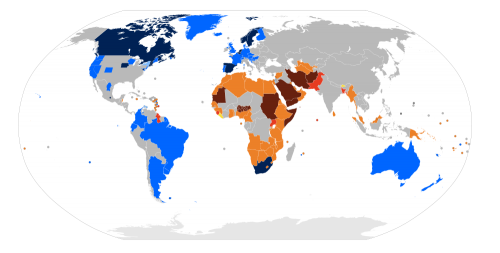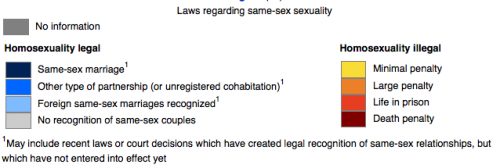
Gay marriage is one of those current issues that allows for a fascinating perspective on civil and human rights. Although in many parts of the US racial discrimination and prejudice are still alive and pertinent, the issue has been decided; arguing for racial discrimination has no place in government policy and in the vast majority of society. The right of gay people to marry, however, still splits the country.
Terry Gross’ NPR interview with reporter Margaret Talbot is an excellent introduction to the topic based around the court case being argued in California right now. It starts with a discussion of fact that one of the lawyers arguing for marriage rights is a conservative, while the other is a liberal. This fact allows for a discussion that is much broader than a simple left-right political argument.
The interview also goes in to the role of the supreme court and its interpretation of the constitution in assuring civil rights for minorities. Loving vs. Virginia, the case striking down bans on interracial marriage, is a precedence that is key to the arguments of supporters of gay marriage.
Gross and Talbot also talk about the “orginialist” position that many conservatives take, where the Supreme Court must interpret the Constitution based on what the people who wrote it believed rather than allowing for the changes that have occurred over the past two centuries.
It’s a fascinating interview, that delves into a number of topics relating to government, courts and human rights, and uses intelligent, challenging, but not impossible language. Our next immersion trip deals with civil rights, and I plan on playing this podcast on the drive to our camping site. I suspect the students may not be too happy about this, but if it puts them to sleep, at least they’ll be well rested when we get to our destination.
